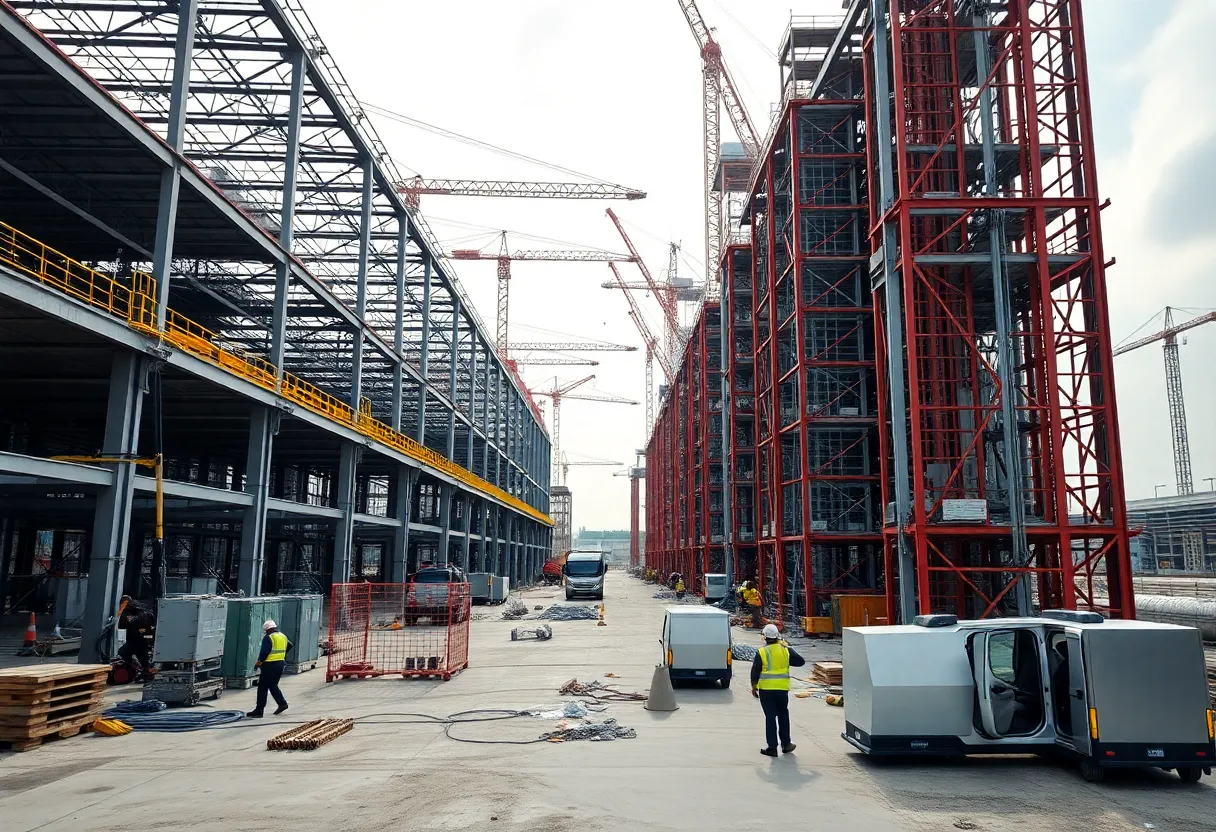News Summary
The opening of Hyundai’s new battery plant in Georgia has been postponed by 2-3 months following an ICE immigration raid that detained numerous skilled workers. The delay raises concerns about the availability of specialized labor necessary for construction, while also straining U.S.-South Korea relations. This development impacts Hyundai’s commitment to create 40,000 jobs in the state, and ignites discussions regarding visa regulations for skilled workers as South Korea expresses disappointment over the immigration enforcement actions.
Atlanta, Georgia – The opening of a new Hyundai battery plant in Georgia has been delayed by two to three months due to an immigration raid conducted by Immigration and Customs Enforcement (ICE) on September 4. The plant is part of a $4.3 billion joint venture with LG Energy Solution aimed at producing batteries for electric vehicles.
During this operation, ICE arrested 475 individuals, the majority of whom were South Korean subcontractors working on the plant’s construction. Some of these workers were reportedly detained for allegedly entering the United States with short-term visas or under a visa waiver program designed to assist with the construction of the facility. This development has raised significant questions about the status of skilled workers essential for the project.
José Muñoz, CEO of Hyundai, expressed surprise at the raid, emphasizing the difficulties in locating specialized skills in the U.S. that are necessary for such construction endeavors. The delay in the plant’s opening is particularly concerning given Hyundai’s promise of generating approximately 40,000 direct and indirect jobs in Georgia.
Following the raid, most of the detained South Korean citizens, including 316 workers, were released after a week and returned to South Korea via a chartered flight. However, reports indicate that some workers chose to remain in the United States due to existing family ties.
The immigration raid has sparked considerable criticism in South Korea, where images of detained workers in shackles have fueled outrage and concern regarding the impact on U.S.-South Korea relations. The South Korean government, led by President Lee Jae Myung, has expressed concerns over the potential negative repercussions for bilateral investments, suggesting that confusion surrounding visa processes may deter Korean companies from making further investments in the United States.
Historically, the U.S. has viewed South Korea as its largest source of foreign direct investment and a critical trading partner, with South Korean planned investments hitting a total of $350 billion aimed at bolstering U.S. manufacturing. However, the recent ICE actions have strained political and economic ties, intensifying pressures to resolve concerns regarding visa issues for skilled workers.
The Department of Homeland Security has characterized the raid as a significant enforcement action, one that carries ramifications for South Korean investment in the country. In response to the events, South Korean officials are engaged in discussions with U.S. counterparts to address worker visa issues, including the potential development of new visa categories aimed at facilitating the entry of skilled laborers.
A recent public opinion poll in South Korea revealed widespread disappointment with the U.S. approach, with many citizens labeling the measures taken by ICE as excessive. This episode has prompted South Korean business leaders to reconsider ongoing projects in the United States, resulting in reports of at least 22 ongoing initiatives being suspended.
Critics argue that a stringent focus on immigration enforcement undermines the broader goals of U.S. manufacturing and risks alienating key allies like South Korea. Furthermore, concerns have arisen regarding the availability of skilled labor necessary for crucial U.S. manufacturing sectors, particularly in battery production, semiconductors, and shipbuilding.
As negotiations continue between South Korean and U.S. officials to clarify visa regulations, the implications of this raid on future investments and relationships remain to be seen. The coming months will be pivotal in determining the trajectory of Hyundai’s battery plant project and the wider economic landscape as both countries navigate these challenges.
Deeper Dive: News & Info About This Topic
- The New York Times
- Wikipedia: Hyundai
- CBS News
- Google Search: ICE raid Hyundai Georgia
- The Economist
- Encyclopedia Britannica: Immigration and Customs Enforcement
- MSNBC
- Google News: Hyundai Georgia ICE raid
- The Guardian
- Google Scholar: Hyundai ICE raid Georgia

Author: STAFF HERE AUGUSTA WRITER
The AUGUSTA STAFF WRITER represents the experienced team at HEREAugusta.com, your go-to source for actionable local news and information in Augusta, Richmond County, and beyond. Specializing in "news you can use," we cover essential topics like product reviews for personal and business needs, local business directories, politics, real estate trends, neighborhood insights, and state news affecting the area—with deep expertise drawn from years of dedicated reporting and strong community input, including local press releases and business updates. We deliver top reporting on high-value events such as Arts in the Heart Festival, Westobou Festival, and Masters Week. Our coverage extends to key organizations like the Augusta Metro Chamber of Commerce and Greater Augusta Arts Council, plus leading businesses in manufacturing and healthcare that power the local economy such as Textron Specialized Vehicles, Cardinal Health, and Nutrien. As part of the broader HERE network, including HEREAtlanta.com and HERESavannah.com, we provide comprehensive, credible insights into Georgia's dynamic landscape.


